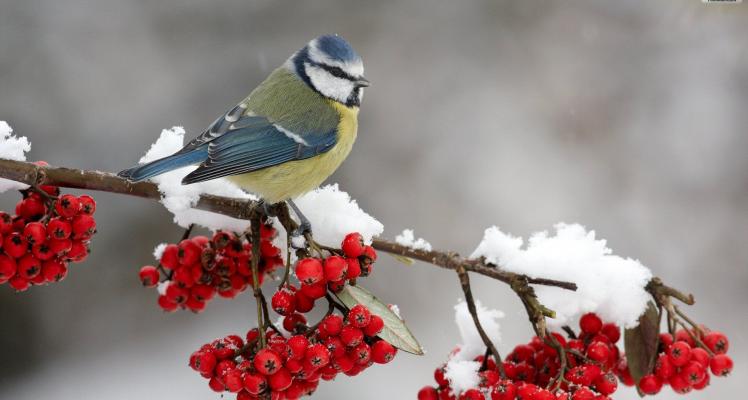Feed the birds
2nd December 2019
Winter can be a difficult time for wildlife. Temperatures plummet and food becomes difficult to find. Insect-eating birds turn to alternative foods, some species travel far and wide, and foraging behaviour adapts, but we can lend a helping hand by providing a welcome source of extra food for birds to turn to in leaner times.
Different birds are attracted to certain foods, often reflecting their special adaptations for natural food types.
Offer a variety of tempting morsels to maximise your bird table’s wow factor.
Goldfinch, siskin, redpoll – smaller seeds like nyjer
Greenfinch, tits – sunflower hearts
Sparrows, woodpigeon, collared dove – large grains
Woodpeckers, tits, starling – fat balls and peanuts
Robin, thrushes – mealworms and live foods
Thrushes, waxwing – windfall fruit
Where to feed
It’s not only the types of food that tickle particular birds’ fancies, but also where they’re fed.
You may have noticed that dunnocks and wrens shy away from bird tables and hanging feeders.
Sprinkle crumbled fat balls and seed beneath shrubs for secretive and ground feeding birds. Smear fat mixtures into the cracks and crevices of branches or bark for treecreepers, nuthatches and woodpeckers. And don’t forget to clear feeders and feeding areas of snow after fresh falls as smaller birds can struggle to get through it.
If you can, it’s also worth moving bird tables and feeders around the garden every now and then. Not only does this reduce the build up of mess, it can also help prevent ambush predators like cats and sparrowhawks from becoming too familiar with the likely location of unwary prey.
Planting for birds
One of the most satisfying and hassle-free ways to feed birds in winter is to plan ahead and let nature provide.
Rowan produces a lasting crop of berries that in bumper years can see birds through for several months. They’re a favourite of mistle thrushes which will guard them jealously from other hungry visitors. Ivy is also a good plant to encourage, its late-ripening berries offering food through the colder months and its evergreen leaves provide the perfect larder for wrens to search out hibernating insects.
Blackbirds, fieldfares and redwings appreciate windfall apples left for them and will turn to crab apples and other hard fruits too. Lucky gardeners may even tempt waxwings. Fruits can also be an important winter food for blackcaps – warblers which usually migrate to warmer climes, but which are increasingly overwintering in southern parts of the UK.
A range of ornamental shrubs also provide berries into early winter, and don’t discount the value of nectar. Small birds such as blue tits and even blackcaps seek out these energy boosts from early or late-flowering mahonia – a firm favourite.
Keep them watered
Providing clean, fresh water alongside food is very important, particularly for seed specialists such as finches. They need to drink regularly to counterbalance their dry diet – all that seed grinding is thirsty work.
Sub-zero temperatures are of course a problem in winter and limit all wildlife’s access to sources of water. Help keep bird baths and ponds ice free by floating a small football on the surface to disturb the formation of ice sheets. Or in really cold weather, fill a metal or ceramic dish with water and set it on bricks over a tea light candle.
Keep it up
Once you start feeding birds, try to keep regular in your topping up habits. While most visitors will adapt and move to new feeding grounds when natural food gradually runs out, a sudden drop off in feeding puts them on the hop. In winter when alternative food sources are already scarce, this could mean the difference between life and death for some.
Keep things clean
While feeding birds in your garden can help see them through the winter, it also has its down sides. We’re encouraging large numbers of birds to share the same small area, putting them at higher risk of passing disease to one another. Trichomonosis for example, a nasty bug that can be fatal for finches and pigeons, is passed from bird to bird through saliva. Sick birds have difficulty feeding and will regurgitate food, contaminating feeding stations and spreading the contagion.
Scrub your bird feeders regularly with hot soapy water and give them a good rinse. Sweep away any accumulations of droppings or spilled seeds and keep feeders free of wet or mouldy foods.
The beauty of making your own feeders from recycled cartons is that they’re cheap and easy to replace when they get mucky.
Credit: https://www.woodlandtrust.org.uk/blog/2018/02/feeding-winter-birds/
